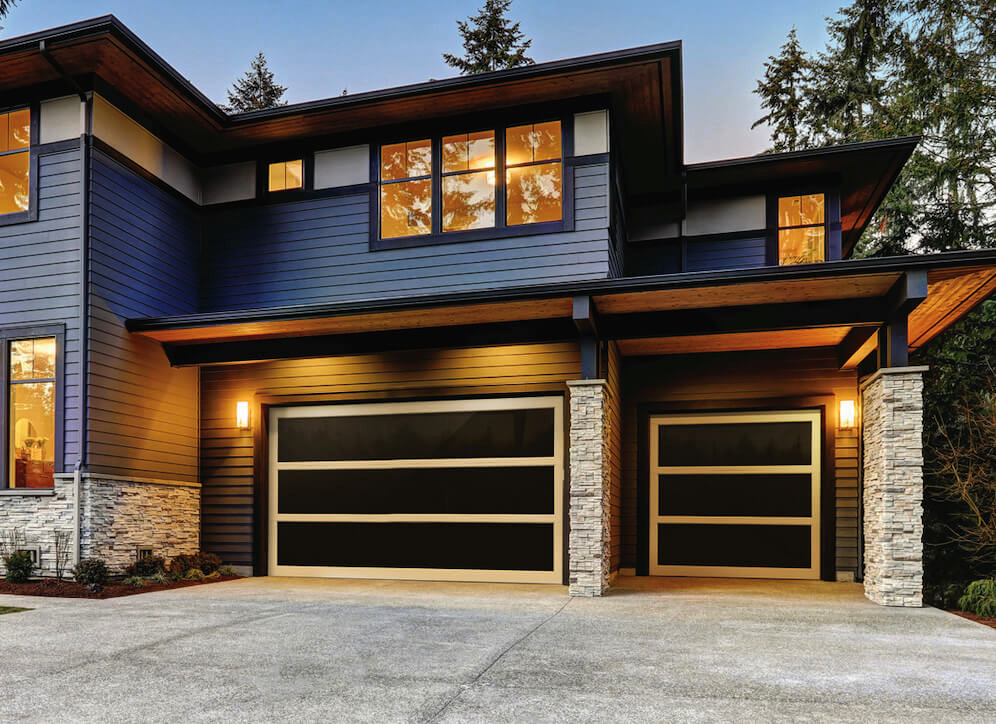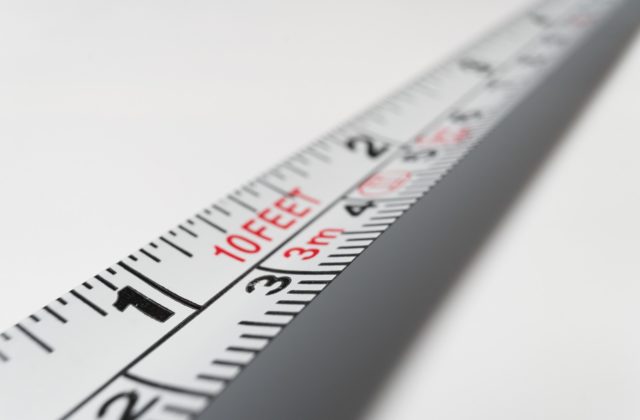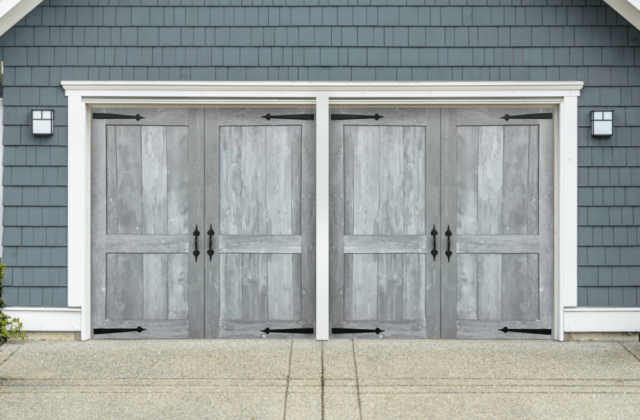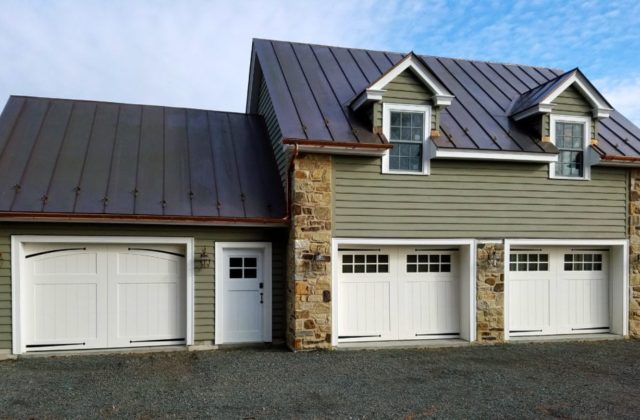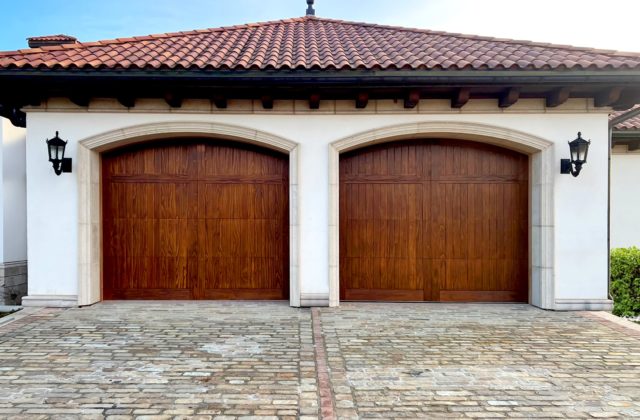Did you know the average garage door in the United States opens and closes around 1,500 times each year? Your garage door is the first line of defense against a variety of threats (like intruders, pests, and inclement weather), so it’s important to ensure it’s working smoothly.
In this blog, we’ll answer the question “when do I replace my garage door?” to ensure you’re getting the most value from this important part of your home. We’ll also review the average cost to replace a garage door, the benefits of doing so, and how you can extend its lifespan.
What to Consider When Replacing a Garage Door
If you’re asking yourself, “when to replace my garage door”, there are several key questions to ask yourself. We’ll review each of these in more detail below.
Is the Door Seriously Damaged?
Not sure what constitutes serious damage? You should replace your garage door if its structural integrity has been compromised due to warping or rust. You’ll also want to replace your door if it has cracked or rotting panels, which can cause uneven weight distribution and put extra stress on the frame and automatic opener.
If your door has large dents or gouges, you’ll want to replace it to ensure smooth movement and avoid further damage to the panel folds. Finally, damaged doors may be unbalanced, which can be problematic for the track and motor.
Is the Door Operating Properly?
If your garage door makes a lot of noise or vibrates excessively, it may have broken hinges, worn-out bearings, uneven tension distribution, or broken springs. All of these issues can be very dangerous since these parts hold the door up and are under an extreme amount of pressure. For example, if the tension spring breaks, the door may drop, leading to property damage, injury, or even death.
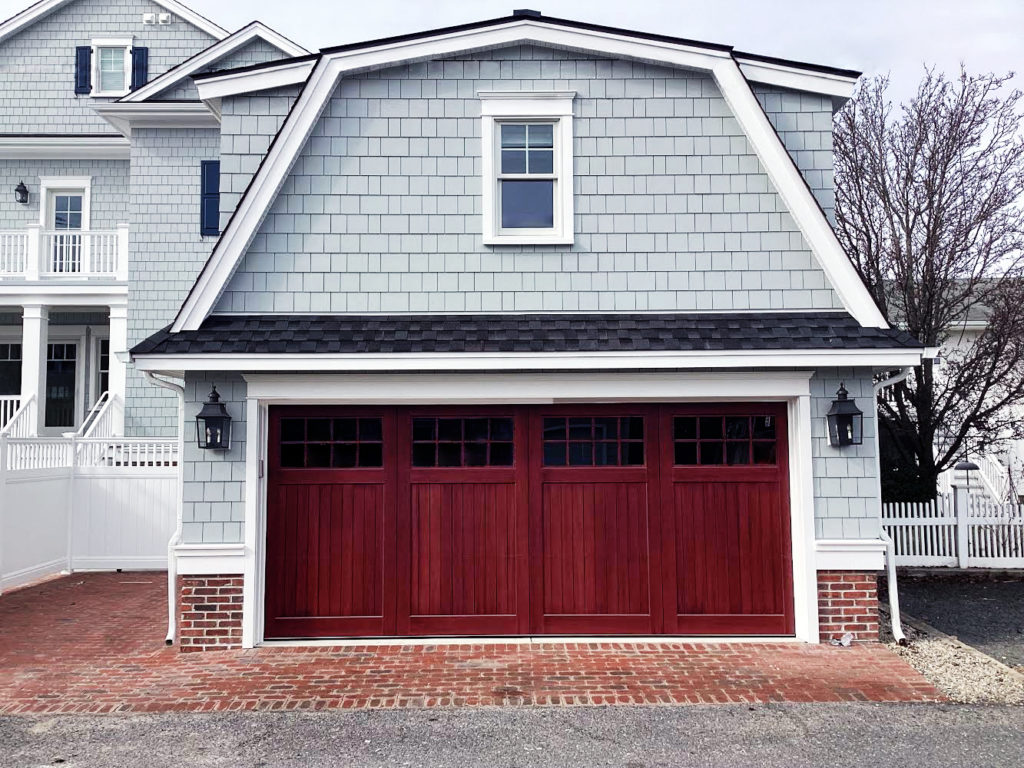
Dirt and debris that’s collected inside your garage door rollers can also prevent normal operation and make a lot of noise. And your automatic opener may make some unpleasant sounds if there’s rust or debris around the chain. Ultimately, your garage door should respond quickly and begin quietly opening or closing at a steady pace. If it doesn’t, it’s probably time for a replacement.
If you want to troubleshoot your garage door, we recommended reading our guide on common garage door closing problems to help you determine if you need to replace your door.
Can You Afford to Replace the Door?
While you may initially be concerned about garage door replacement costs, it’s important to realize that repairing an old door often costs more than replacing it altogether. There are many high-quality and economical options to choose from that still look great and offer a long lifespan. This could be the incentive you need if you’re asking “when is it time to replace a garage door?”
How Old is the Door?
If your garage door is damaged and over 15 years old, it’s probably time to look for a replacement. After all, it doesn’t make sense to put money into repairing an old door when it will probably need to be replaced in the near future. With all of the options available, you’ll easily be able to find a door that perfectly complements your home while also improving its curb appeal and resale value.
Is the Door Right for Your Climate?
Are you still wondering how to know when to replace your garage door? Start by considering the climate you live in. Your garage door may rust, warp, or fade due to harsh weather conditions and temperature fluctuations, so it’s essential to factor in your location when choosing a new door.
If you’re not sure what to consider when replacing a garage door in your specific climate, start with the following:
- Do you live in a hot climate where your door experiences significant sun exposure? This can cause dark colors to fade and topcoat degradation over time, leading to expansion and contraction that can cause cracks, splits, and bows.
- Do you live in an area that frequently experiences high winds? This can drive dirt, debris, and rain onto the exterior face of your door, wearing off protective topcoat layers and causing water absorption and deterioration.
- Do you live in a coastal area? Salt is extremely corrosive to most surfaces, magnifying the impact of normal degradation over time. To find out more on coastal garage doors in our costal garage door guide.
- Do you live in an area that experiences hurricanes or tornadoes? A breach in your garage door during a storm can cause a buildup of internal pressure that blows out your roof and supporting walls. If you live in a hurricane- or tornado-prone area, look for a garage door that’s rated to handle high winds and satisfies mandatory wind-load reinforcement requirements
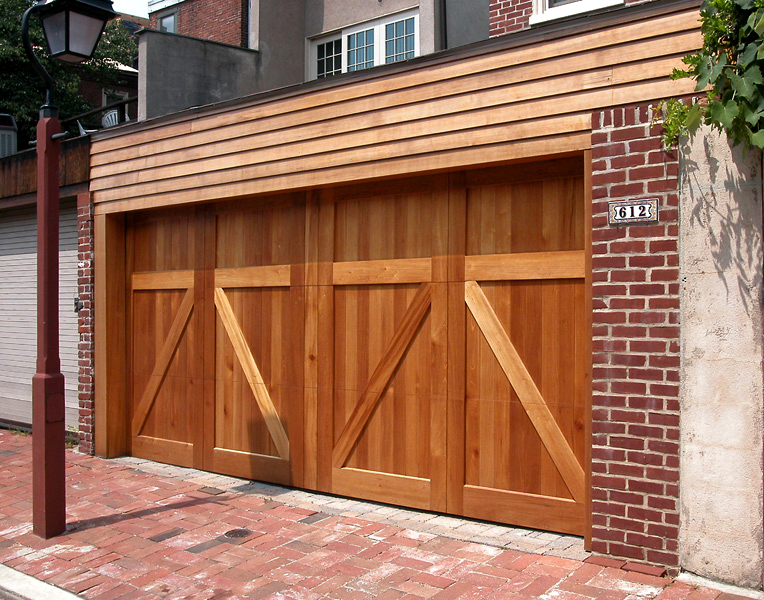
Benefits of Replacing Your Garage Door
There are many benefits to knowing when to replace a garage door with a newer model. We’ll review each of these advantages in more detail below.
Improved Safety & Security
Intruders may attempt to break into your home through the garage, so it’s of the utmost importance that your door is secure. New garage doors often have an additional lock, and you may even be able to set up a keypad that creates a random access code and sends it to your smartphone. This ensures that your passcode is unique each time, maximizing safety and security.
Decreased Energy Costs
Old garage doors lose their insulation over time due to gaps between panels, dents or gouges, and degraded weather stripping. This lets cold air in and warm air out over the winter and cold air out and warm air in over the summer. New garage doors have better insulation and tighter seals, helping you regulate the temperature of your garage and giving your HVAC system a much-needed break.
Higher Resale Value
Studies show that replacing your garage door can provide a 90% return on investment, making it one of the most cost-effective remodeling projects. A new door also increases the sale price of your home by modernizing it and increasing appeal among potential buyers.
Heightened Curb Appeal
An old garage door that’s sustained significant damage negatively impacts your home’s curb appeal and can stand out like a sore thumb. It’s key to consider how your garage door fits in with the rest of the home since it makes up a significant portion of the facade and may even be a focal point.
Whether you’re remodeling your entire house or focusing on the area around your garage, you should seriously consider replacing your door. There are a plethora of options available, allowing you to pick the color, material, and accessories that are right for you.
Less Maintenance
Newer garage doors are easier to maintain than older products because they come with brand new parts. Many of today’s garage door materials are also extremely low-maintenance and easy to clean, which we’ll touch on later in this blog.
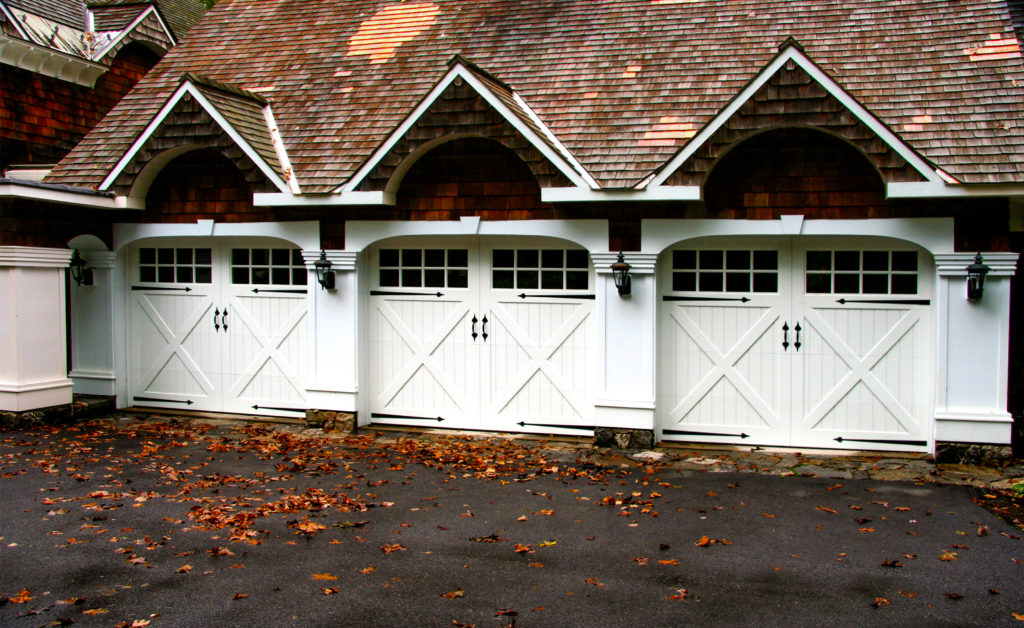
How to Extend Your Garage Door’s Lifespan
There are many ways to extend your garage door’s lifespan, whether you’re sticking with your current door or replacing it with something new. Let’s take a closer look at each one.
Choose the Right Material
As mentioned previously, it’s essential to consider how your garage door will perform in your specific climate. This is primarily influenced by the material the door is made of. Whether you choose wood, wood composite, faux wood, vinyl, or glass, there are distinct pros and cons for each.
Don’t Neglect Maintenance
Scheduling an annual preventative maintenance appointment with your installer (and performing your own periodic checks) is key to extending the lifespan of your garage door. Here are a few specific things to keep in mind when it comes to basic garage door maintenance:
- Lubricate the moving parts with oil to prevent rust and corrosion.
- Tighten up the hardware to prevent debris buildup and damage.
- Test the door’s balance by disconnecting it from the opener and moving it manually.
- Inspect the rollers to ensure they aren’t damaged and hindering the door’s operation.
- Install new weather stripping to protect the inside of your garage from the elements.
- Test the auto-reverse system and the functionality of the sensor.
- Clean the tracks to remove debris, cobwebs, or nests that may be in the way.
- Listen for unpleasant noises as the door opens and ensure it isn’t getting stuck.
- Check the door’s appearance for damage after storms or extreme weather.
Clean Your Door Regularly
Cleaning your door with a mild detergent (e.g. dishwashing liquid or biodegradable cleaner) and a soft cloth or bristle brush will also extend its useful life. Work from the bottom section to the top section, and be sure to clean the weather stripping on the sides, top, and bottom of the door. When you’re done, rinse it with a garden hose or low-pressure sprayer (never use a pressure washer).
